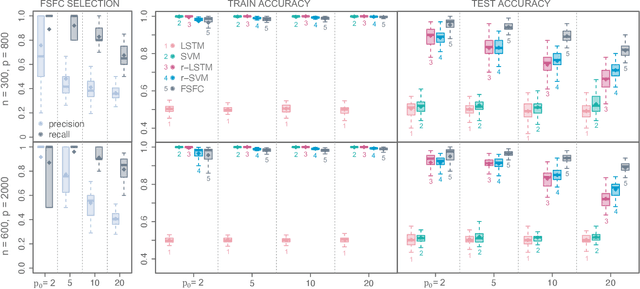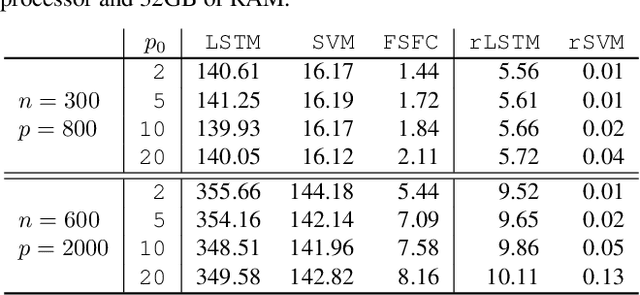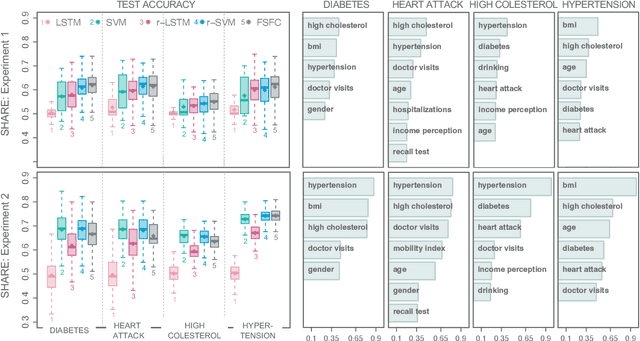Feature Selection for Functional Data Classification
Paper and Code
Jan 11, 2024


Functional data analysis has emerged as a crucial tool in many contemporary scientific domains that require the integration and interpretation of complex data. Moreover, the advent of new technologies has facilitated the collection of a large number of longitudinal variables, making feature selection pivotal for avoiding overfitting and improving prediction performance. This paper introduces a novel methodology called FSFC (Feature Selection for Functional Classification), that addresses the challenge of jointly performing feature selection and classification of functional data in scenarios with categorical responses and longitudinal features. Our approach tackles a newly defined optimization problem that integrates logistic loss and functional features to identify the most crucial features for classification. To address the minimization procedure, we employ functional principal components and develop a new adaptive version of the Dual Augmented Lagrangian algorithm that leverages the sparsity structure of the problem for dimensionality reduction. The computational efficiency of FSFC enables handling high-dimensional scenarios where the number of features may considerably exceed the number of statistical units. Simulation experiments demonstrate that FSFC outperforms other machine learning and deep learning methods in computational time and classification accuracy. Furthermore, the FSFC feature selection capability can be leveraged to significantly reduce the problem's dimensionality and enhance the performances of other classification algorithms. The efficacy of FSFC is also demonstrated through a real data application, analyzing relationships between four chronic diseases and other health and socio-demographic factors.
 Add to Chrome
Add to Chrome Add to Firefox
Add to Firefox Add to Edge
Add to Edge